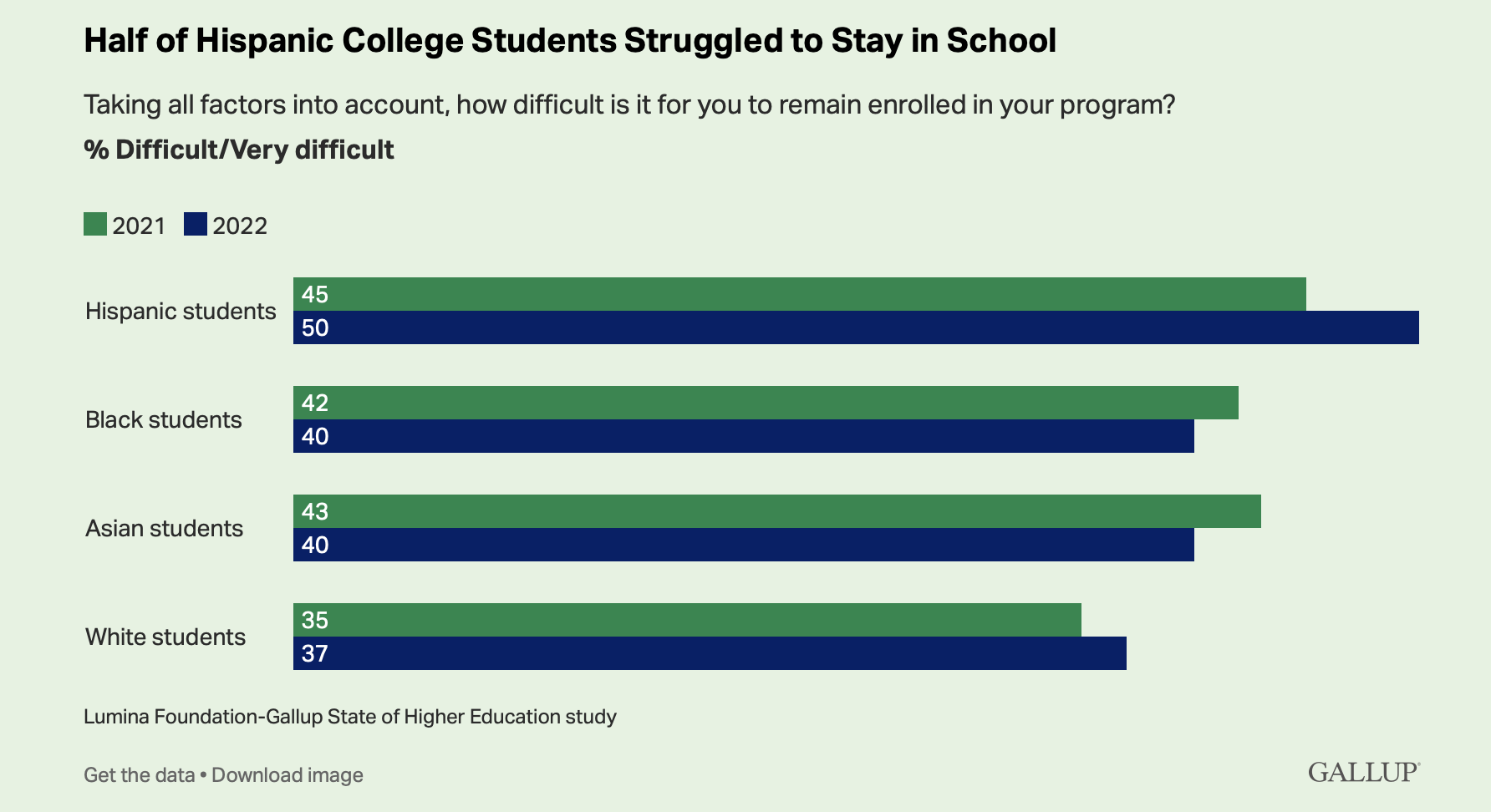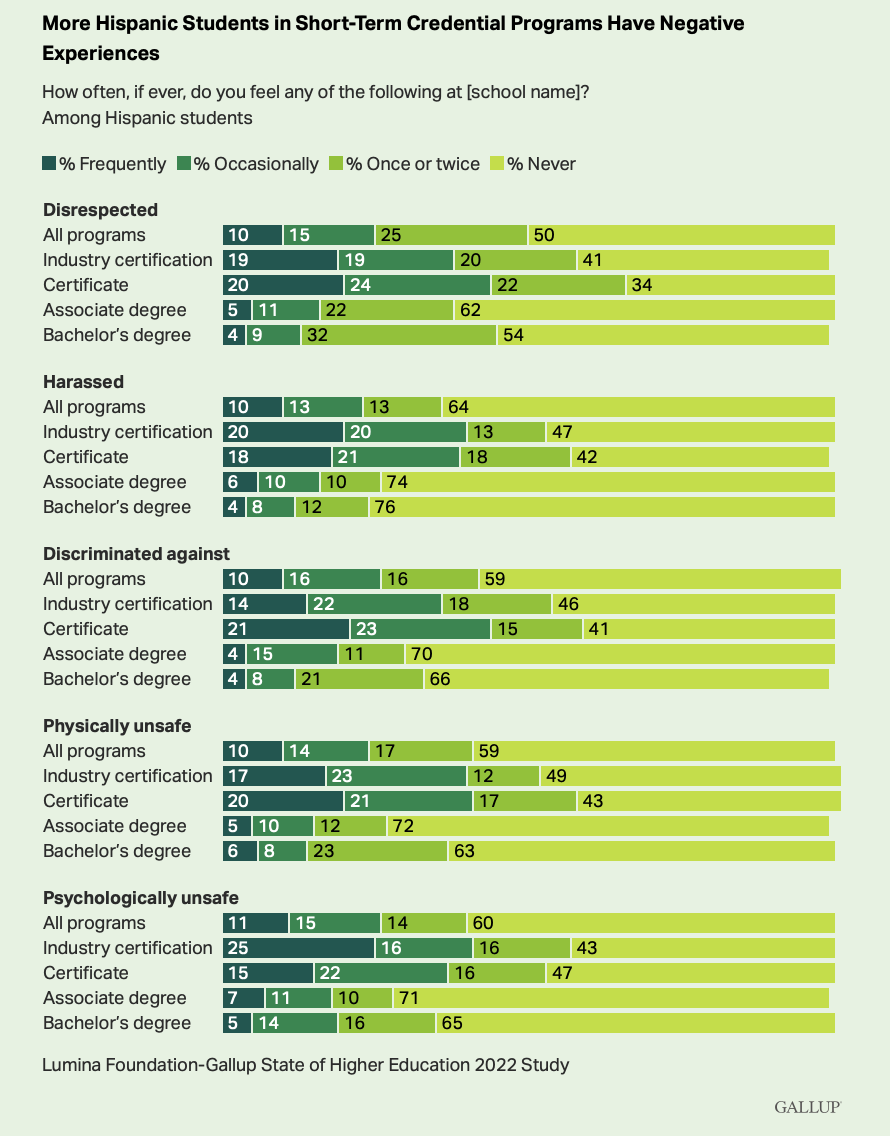In post-pandemic America, in a world dominated by anti-immigrant rhetoric, Hispanic students report higher levels of discrimination than any other ethnic group, according to new data from Gallup and the Lumina Foundation.
Among students enrolled in post-high school education in 2022, Hispanic students were more likely to feel discriminated against, harassed, disrespected and physically and psychologically unsafe at their institutions.
Gallup found about one-fourth of Hispanic students said they “frequently” or “occasionally” experience discrimination or harassment. The problem is most acute in short-term and certificate programs.
The levels of discrimination experienced by Hispanic students now exceed those reported by Black students, but about one in five Black students also reported experiencing discrimination in their post-high school training.
Asian students and white students also report discrimination and harassment, but at lower levels. Hispanic and Black students say they feel psychologically unsafe at rates double what’s reported by Asian and white students. White students also are significantly less likely to report feeling physically unsafe, discriminated against or harassed.
Gallup found a distinct difference among students enrolled in short-term programs versus those enrolled in associate or bachelor’s degree programs. Rates of reported discrimination and harassment are two to three times higher in the short-term programs.
“The higher rates of negative experiences among Black and Hispanic students enrolled in short-term programs are particularly concerning, given the increasing popularity of these programs in the U.S., particularly among students of color,” the Gallup report notes. “Certificates made up just over one in seven of the postsecondary credentials white students completed between 2020 and 2021 at Title IV degree-granting institutions, compared with one in five Black and Hispanic students.”

Related to this, Hispanic students are the most likely of any racial or ethnic group to report considering “stopping out” or pausing their studies for one term or longer, researchers found. More than half of Hispanic students (52%) said that in the past six months, they had considered stopping their coursework for at least one term.
“The chief reasons Hispanic students gave for why they considered stopping out were generally similar to those for students from other racial and ethnic backgrounds: emotional stress, personal mental health reasons, cost, inflation and difficult coursework. However, Hispanic students were more likely to consider stopping out because of caregiving responsibilities,” the report states.
These higher rates of dropping out extend from short-term educational programs to associate and bachelor degree programs, too.
Gallup found 50% of Hispanic students currently enrolled in a post-high school education program found it “very difficult” or “difficult” for them to remain in their program. Fewer Black students (40%) and white students (37%) reported having this much difficulty staying in their programs.



